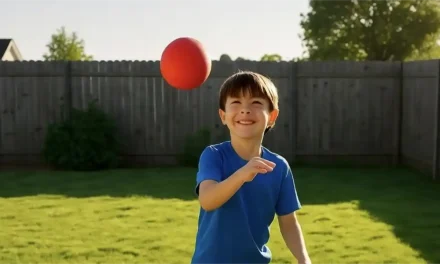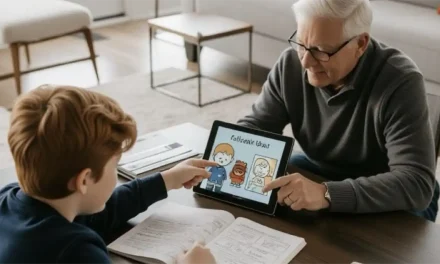
Providing Resources and Support: Build a Home Library for Lifelong Reading
B
ooks lining a shelf don’t just sit quietly—they tempt young minds to wander, question, and imagine. In Enlightenment libraries, thinkers once turned pages to chart new ideas. Your child can do the same. Storybooks and guides invite kids to explore strange lands and big ideas, supporting them in reading groups, writing assignments, or simply in growing up. Unlike short screen clips, books encourage them to linger over complex thoughts, building understanding and compassion. As they choose fiction or nonfiction, they learn to explain what they read, sharpening their skills. A weekly habit of reading together, asking “What is this about?” can make your den a place where their thinking stretches and their voices grow confident.
I carved out a den corner—shelves packed with novels, science books, and an atlas my son adored. We hit the library weekly, letting them choose: fossils for her, physics for him. One night, they clashed over dino claws versus gravity, the rug buried under open books and loud ideas. Later, my daughter’s fossil summary won a school contest, while my son debated physics in a book club, his confidence soaring. Those evenings, sparked by a library card from our shelf, taught them to dive into stories and facts—a habit they carry into classrooms and conversations.
Create a home library to ignite a passion for reading. Schedule weekly sessions to pick and discuss books, asking, “What is this book about?” to guide engagement. Provide a journal to log summaries, preparing them for projects like book reports or club talks. Encourage them to share their insights at school or family events, building confidence and pride. These moments, from novels to guides, help children thrive in reading classes or writing groups, where their deep thinking sets them apart.
Providing Resources and Support

Providing Resources and Support: Create Hands-On Learning with Experiment Kits
Hands-on experiment kits make learning exciting and real. Support your child’s curiosity, observation, and problem-solving skills with guided discovery.

Providing Resources and Support: Fuel Passions with Tools like Telescopes
Offering meaningful tools deepens engagement. Provide instruments, kits, or materials that support genuine curiosity and exploration.
Table of contents

Primordial Soup for the Mind: Navigation
Navigate the book Primordial Soup for the Mind.
TIPS
- Let them choose—comics count too.
- Say, “What is it about?” to spark a chat.
- Keep a journal for their summaries.
- Suggest weekly reading sessions.
ACTIVITIES
- Book Grab: Pick three library books, read one, talk it out, 15 minutes.
- Story Swap: Each kid shares a favorite page, guess the plot, 10 minutes.
EXAMPLE
My daughter’s physics book bored her—until she tried fiction; now she is glued to sci-fi.

Download “Primordial Soup for the Mind: A Parent’s Guide to Nurturing Intellectual Growth”
Enter your information to get this article and hundreds more as part of the FREE book Primordial Soup for the Mind.
Share your thoughts with the Thought Academy community in the Comments section below.

Sharpen those skills!
Enter your information to get our FREE practice exercises so you can hone your critical thinking and reasoning skills!







0 Comments